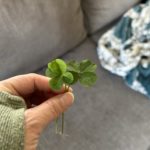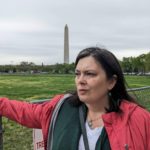Forks in the Road
Although I’ve been thinking a lot about Casie’s list of activist advising questions for students considering careers in academia, and I had planned to do a series of posts answering some of those questions, that plan began to feel a little disingenuous.
Here’s a refresher of those questions:
What is it you like about academia? Specifically, what practices make you happy?
What parts of academia stress you out or make you upset?
Is it important that you live in a specific city, state, or region?
What kind of financial compensation do you need to be happy?
What sort of daily or weekly schedule do you envision as your ideal?
Is teaching/research/administration a practice that you could envision yourself engaging with over time?
What feelings do you experience when you think about not working in academia?
What kind of job could you imagine yourself doing and being happy?
Do you like to research and write?
How do you deal with timelines and independent goal setting?
If you had to describe your ideal day at work—from waking up to going to bed—what would that day look like? What challenges might you encounter? What high points might you experience?
What identities do you call on when you consider your self-worth? Your values? How do you prioritize these identities?
While I still think that it is worthwhile to keep many of these questions in mind throughout your career, the disingenuous part of my reflection plan is that I already have a career in academia. It might not be the traditional tenure-track assistant professor gig, but I am now three years into the system. If I truly wanted to, I’m positive I could find a way out, but for now at least I’m not that motivated to get out. Recent events (graduation), have however, made me re-think my position in the academy.
That last question, “What identities do you call on when you consider your self-worth?” That is the question driving me the most right now. Although, since going back to community college in some way shape or form I’ve been a student since 1995, I am now officially done. No more student. Given the duration of my time in and out of schools, you might suspect this would be a bigger identity crisis than it really is. As typically happens with me, the strange backwards way I find myself doing things actually works to my advantage in some way. Taking a full-time job before I had finished my dissertation actually worked for me in terms of my identity. For the last three years, I’ve been cultivating a new identity through work. My professional identity primarily got me through that last stage of dissertation writing because having a job made me want to be done being a student. Since, as I said before, the only way to get done was to work through it, I did it. The more I built an identity as a writing center administrator by working all day, presenting at conferences, and joining professional organizations, the more vexing it became to continually have interactions that placed me firmly in my “student” identity.
Now, however, my professional identity as a writing center administrator is somewhat at odds with the identities I feel most tied to my self worth because it only addresses one aspect of the academic triumvirate – administration. Teaching, researching, and writing are supported to an extent in my current job, but they are not a part of my official job description, of which I am occasionally reminded. Teaching is more supported, as long as it is in direct service to my administrative duties. (I am expected to teach tutor training courses, but nothing else.) Yes I am funded to go to conferences, but the papers I give, if written at work, should not take away from my primary duties of staffing and promoting the writing centers. None of this makes my job horrible, in fact I really like what I do, but it does mean my job doesn’t fit me as well as it might.
As difficult as I find it, and as scarred as I might be by the dissertation, some of my identity is wrapped up in being an academic writer. The silver lining of this crazed, hectic semester is that it helped me identify when I am least happy at work. Being out of the office for classroom visits and a ton of presentations, constantly needing to prep for a class or staff meeting, putting out the various fires of trying to add another center to an already crowded space, there has been no time for me to read/research and write. Consequently, this last week when I finally did have 20 minutes here and there to think about the 3-4 CFPs with October 15th-ish deadlines, I couldn’t write. I had nothing to say, which as you might guess is fairly rare. What I learned this week is that being an academic writer is one of my identities and that it holds some value for me because when that identity is not supported by my work environment it makes me unhappy; it makes it harder to focus on what I do like about my job.
Here comes the fork in the road.
The question now is what I do to make sure my identity as an academic writer is a part of my work. The thing about working at a large research institution is that change is incremental at best and glacial at worst, so I don’t necessarily see my present working conditions or classification changing any time soon. Sure, my schedule will free up over the next couple of weeks, and if I can churn out some proposals, I should be able to then go back and get back into my writing. Writing and research will not, however, become a larger part of my job description any time soon. As you might have guessed, yes, this does mean I’ve been keeping an eye on the job lists and considering applications for more traditional tenure-track, assistant professor, types of positions. All of which, as you can imagine, means there will be some serious navel gazing going on around here for a while as I give some serious thought to both my answers to the above questions, and whether or not I want to further entrench myself in academic life. Because, although I just identified “academic writer” as an important way to think about myself, there are regions of the country where it is important for me to live; as the person with the primary income in my family, financial compensation is important; there are values and identities I hold that have the potential to conflict with a deeper engagement with the academia. The more I work to pull together materials, and apply to different positions, the more questions I have about whether or not this is the way to go. The reality is probably that it is the path I am already on, and that I need to give up the questioning and doubt to just get it done.
For now though, at least it gives me something to write about.







 D5 Creation
D5 Creation